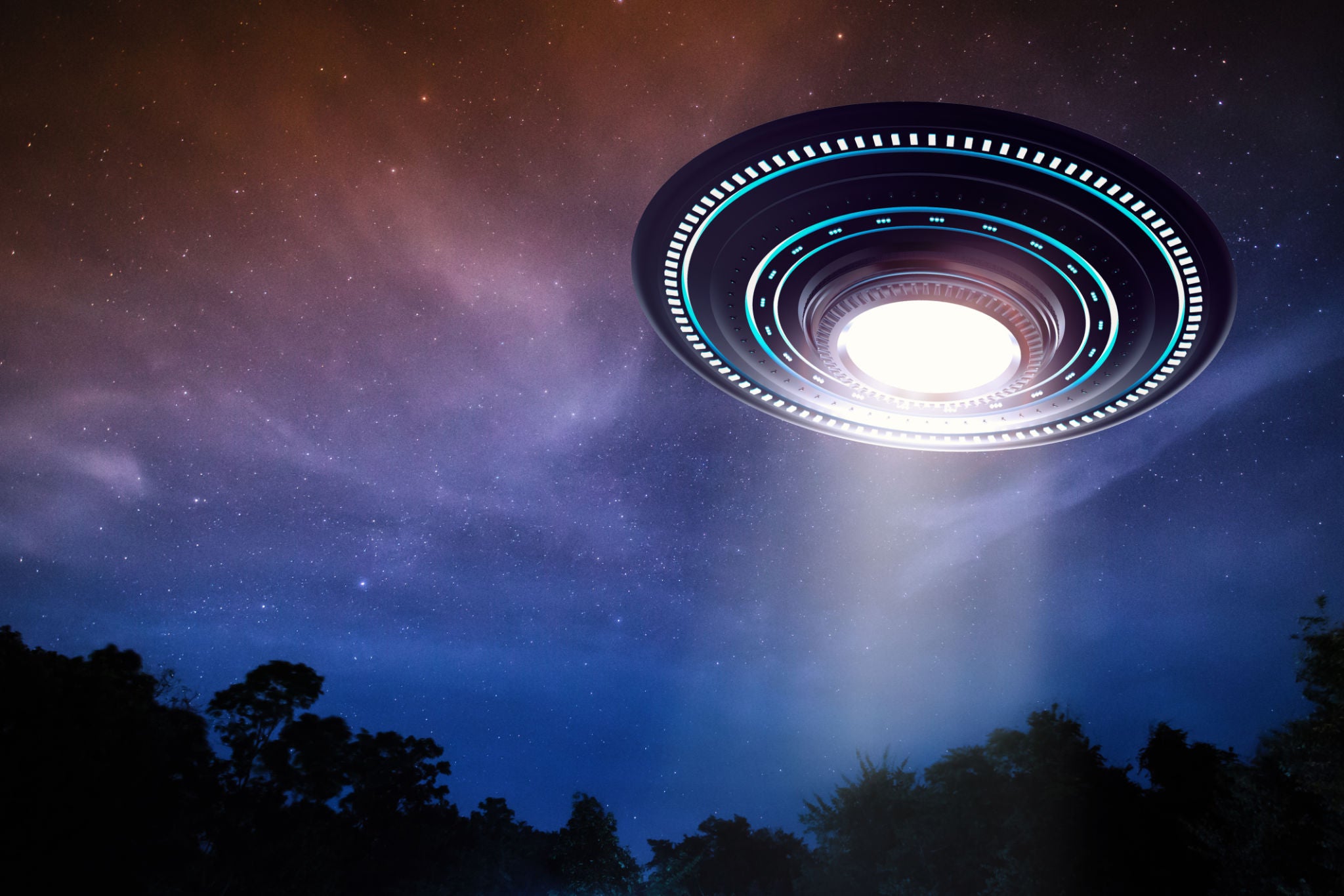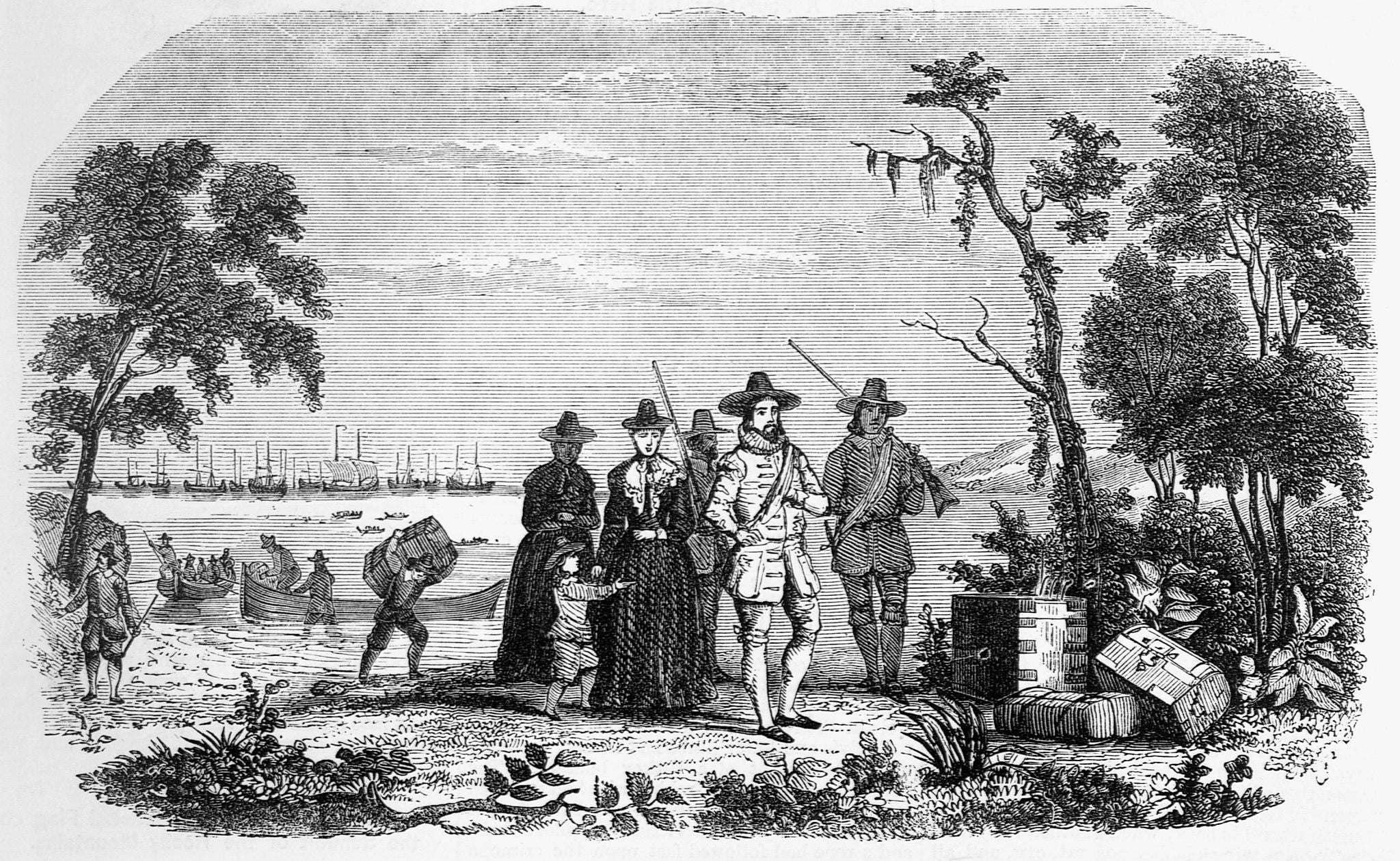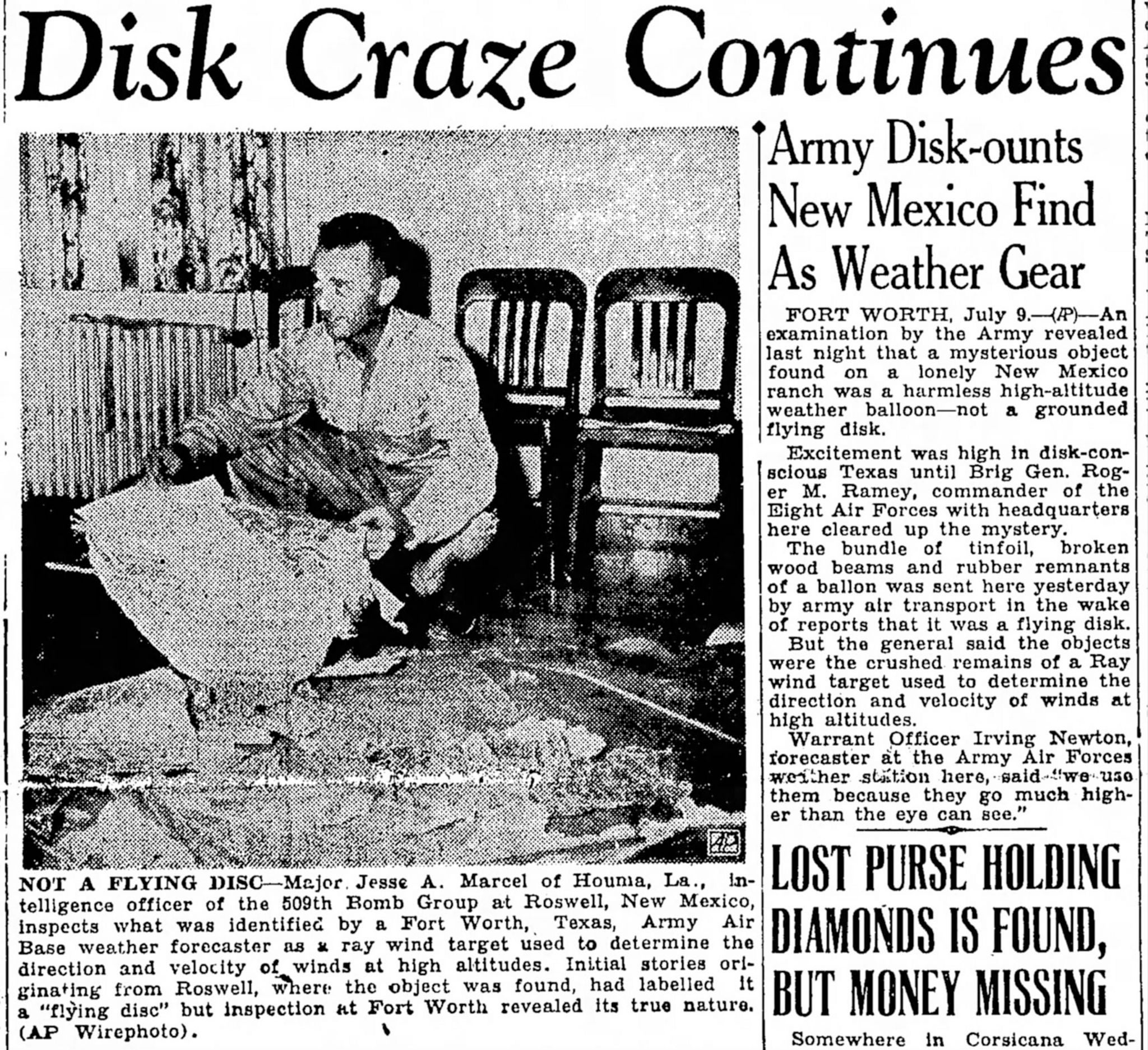This Week in UFOs: A 400 Year Old Close Encounter and the Former Manager of Area 51 Says They Had 'a Live Being'
 PhonlamaiPhoto. Getty Images.
PhonlamaiPhoto. Getty Images.It's been a relatively quiet week on the Unexplained Aerial Phenomena front. I say "relatively," because to the best of my knowledge, we haven't had an dogfights between F-22s and hobbyist club balloons or former White House cabinet secretaries crying themselves to sleep after getting getting briefed on what the government knows about UAPs. So grading on that scale, not as much has been revealed.
But "not as much" does not mean "nothing." Not by a damned sight. You know how UFO experiencers have traditionally been accused of either being delusional crackpots or shameless attention seekers hoping to become famous off of their preposterous claims? Or both? If that's how you regard people who report encounters, explain this eyewitness to me:
 Bettmann. Getty Images.
Bettmann. Getty Images.The tall drink of water in this illustration would be one of the first leaders of European settlers in the New World. Puritan. Colonist. Founding political figure. Author of the oft-cited "City on a Hill" sermon about Boston. Masshole. UFO enthusiast:
Fox News - The first known UFO encounter in America was recorded in 1639 by Puritan leader and prolific journal-keeper John Winthrop — leader of the Massachusetts Bay Colony and a foundational figure in the national pantheon.
Winthrop’s sensational account of "a great light in the night" was witnessed by a group of "sober, discreet" and "credible persons" over Muddy River in Boston — a trickle of a creek that today wraps around American sports landmark Fenway Park. … He has serious street cred in academia. …
Winthrop’s incredible tales of aerial phenomena in early America, long unknown, generated sudden interest in recent years. …
"In this year one James Everell, a sober, discreet man, and two others, saw a great light in the night at Muddy River," Winthrop wrote on March 1, 1639.
"When it stood still, it flamed up, and was about three yards square; when it ran it was contracted into the figure of a swine."
Winthrop went on, "It ran swift as an arrow toward Charlton [Charlestown] and up and down about two or three hours. They were come down in their lighter [a small barge] about a mile, and, when it was over, they found themselves carried quite back against the tide to the place they came from. Divers[e] other persons saw the same light, after, about the same place."
At hearing of the encounter for the first time, UFO researcher Nick Pope told Fox News Digital this week, "That's stunning. …
"I think it speaks to the fact that those skeptics don’t like to admit, but most UFO witnesses, like Everell or Winthrop, are serious, sober individuals," said Pope.
"Stunning" is a good word for it. Also, "common" wouldn't be a such a bad descriptive either, given that the historical record is filled with such observations. From Columbus's journal recording the lights he saw in the sky and under the ocean on his trans Atlantic voyage to Mexican priest Silvestre Velez de Escalante writing about "fireballs in the sky" on his expedition through what is now the area around Skinwalker Ranch.
But don't take the word of explorers, founders, or men of faith recording these things with quill pens in their private journals, without any thought these words would ever see the light of day. I'm sure they were just nutjobs. Or hoping someday to become internet famous centuries after their deaths.
But if influential historical figures aren't your speed, let's try something reported by two of the leading experts in the UAP field, who have been doing more reporting on this topic than anyone: Jeremy Corbell and journalist George Knapp:
Source - Alfred O’Donnell, a senior manager of EG&G, the defense contractor that managed Area 51, claimed that “they did have a flying saucer that had been recovered from New Mexico,” and a “live being” according to investigative journalist George Knapp, who interviewed him on numerous occasions.
According to Knapp, O’Donnell, when speaking about the ‘being’ told him:
“We didn't know what it was…To tell you the truth, we couldn't communicate with it. In the beginning, we didn't know what it was, we didn't know where it was from. And we didn't know what to do with it.”
Knapp added that O’Donnell compared the being’s appearance to former Presidential nominee Ross Perot, unlike the classical grey-looking alien.
Knapp also shared a story about a former female employee of defense contractor Holmes & Narver who allegedly had knowledge about "crashed saucers, recovered materials, and what sounded like a Roswell-type incident." Before Knapp was scheduled to speak with her, the woman was intimidated by unknown agents, which caused her to cancel the meeting.
OK, I'll admit that I prefer my extraterrestrial visitors to look more like the traditional idea of alien "Greys" than failed third party presidential candidates:
But I don't know who could be a more credible source than the person who actually was in charge of the company that was in charge of Area 51. Especially when all this Alfred O'Donnell told Knapp just confirms what we've heard about Area 51 for decades. Decades, I'll remind you, when the authorities told us no such place exists. Before finally admitting that it has existed all along. Nor is this unnamed female employee of that defense contractor the first one to ever claim she was followed by shadowy government agents and intimidated into keeping her trap shut. Men in Black wasn't just made up by a Hollywood screenwriter. These stories are numerous, and they go back a long time. At least as far back as Roswell itself, when a local was on Page One of the paper one day talking about the flying saucer wreckage he saw, and the next day on the front of the same paper with a picture of a weather balloon:
 Universal History Archive. Getty Images.
Universal History Archive. Getty Images.After 70 or so years, you might start to notice a pattern developing.
You either believe the people who have lied to us (the government) or the people who never have (Knapp and his sources). It's perfectly OK to be skeptical. But at some point, you have to look at the stats. Corbell and Knapp have an impressive batting average when it comes to being right. So they're reliable narrators as far as I'm concerned. Or you can just go by what the most reliable person in the Massachusetts Bay Colony was reporting in 1639. You just can't assume everyone is lying about this.


